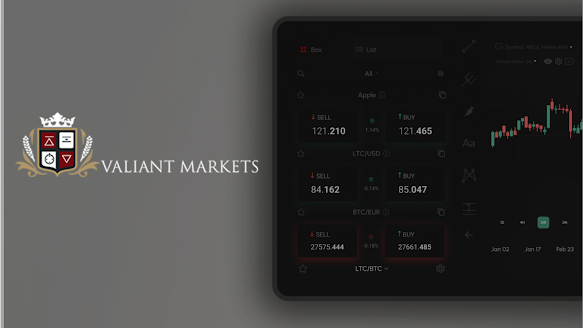7 Basic Stock Market Concepts You Need to Know
If you're unfamiliar with the fundamentals of the stock Valiant Markets, the stock trading information in the media can border on nonsense. Phrases like "earnings movers" and "intraday highs" don't mean much to the typical investor, and they shouldn't work in many situations. If you're in it for the long haul instance, with a portfolio of mutual funds aimed for retirement — you don't need to be concerned about what these phrases imply or the flashes of red or green at the bottom of your TV screen. Here is a blog post for the same.
What does it mean to acquire shares in a company?
Most businesses (both public and private) have shareholders. A shareholder is someone who owns a portion of the firm and so qualifies as a partial (or complete) owner.
Public firms sell their company to the broader public through an initial public offering (IPO). Following the IPO, anybody can purchase shares in their firm (small bits of ownership).
If you buy a share of Mastercard (MA) stock, you're essentially purchasing a small interest in the corporation. This allows you to vote on significant shareholder concerns, collect dividends, and participate in their growth through stock price rises.
Preferred stock and ordinary stock
When we talk about Apple (AAPL), Amazon (AMZN), or Coca-Cola, we all think about common stock (KO).
Shareholders of common stock have the right to vote at shareholder meetings (or remotely, through online or postal proxy voting) and to receive dividends accessible to common shareholders. The disadvantage is that ordinary shareholders are paid last, after preferred shareholders, creditors, and bondholders, if a firm goes bankrupt and is liquidated.
Preferred shares frequently pay a dividend but do not have voting rights. If the firm is liquidated due to bankruptcy, it will be paid out before regular stockholders.
Exchanges of stocks
A stock exchange is a trading platform where shares are exchanged. It's a marketplace that brings buyers and sellers together.
IPO
An initial public offering (or "IPO") is the first time a company's shares are available on the open market.
One of the most common motivations for a company to go public is to obtain capital. A corporation may add a lot of money to its coffers by selling its shares during an IPO.
Going public is a lengthy process, and massive IPOs generally excite investors for two reasons.
Market capitalization
When investors discuss "market caps," they are simply referring to the size of a firm.
The complete term is "market capitalization," which refers to the company's overall value. The value is calculated by multiplying the number of shares on the stock exchange by the price per share in Valiant Markets. Because share prices move daily, so does the underlying company's market valuation.
What are dividends?
A dividend is a monetary payment made by a corporation to its shareholders.
Dividends can be thought of as follows:
You're turning over money to acquire a small percentage of a firm, and the company will pay you a tiny share of its profits (since you're now an owner).
Many corporations (thousands) provide quarterly dividends to their owners.
Bull and a bear market
Simply put, a bull market is a prolonged time during which stocks rise, whereas a bear market is a long period during which equities fall.
Conclusion
Hope, this information will help you a lot. In case of any issue, you can seek Valiantmarkets. They offer the best services. Refer to their website for more details.


.png)
Comments
Post a Comment